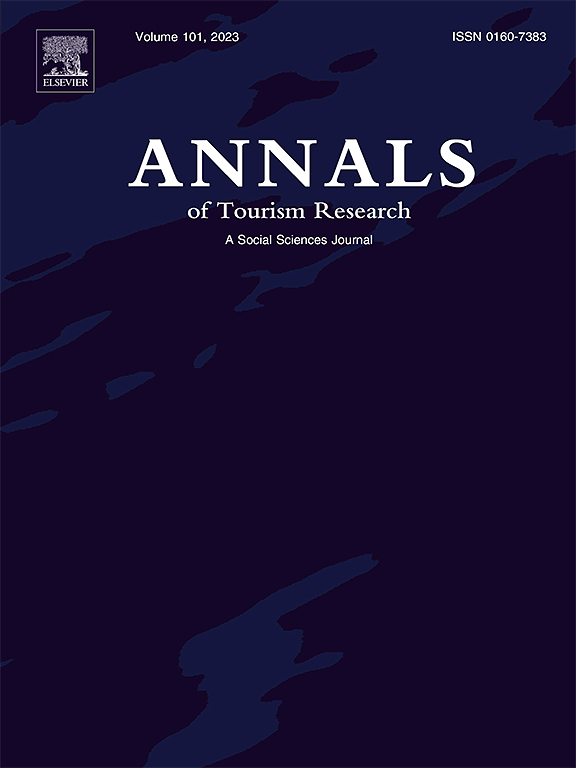From indigenous villages to World Heritage Sites: Structural violence in spatial transformation
IF 10.4
1区 管理学
Q1 HOSPITALITY, LEISURE, SPORT & TOURISM
引用次数: 0
Abstract
Once indigenous villages are designated as World Heritage Sites, they no longer belong exclusively to local residents. The political, cultural, and tourism-related values of these sites are overemphasized, often undermining the subjectivity of local residents. This transformation in spatial attributes of the villages constitutes “structural violence” against local communities. Existing literature still lacks direct research attention on this issue. This study uses the Fujian Tulou villages in China as case sites, employing a “material-social-cultural” three-dimensional framework to summarize three forms of structural violence: resource deprivation, imbalanced interest structure, and discourse erosion, rooted in spatial transformation, and further explores their underlying causes. The findings deepen insight into the tensions between World Heritage practices, tourism, and sustainable community development.
从原住民村庄到世界遗产遗址:空间转型中的结构性暴力
一旦原住民村庄被指定为世界遗产,它们就不再只属于当地居民。这些遗产地的政治、文化和旅游相关价值被过分强调,往往削弱了当地居民的主体性。这种村落空间属性的转变构成了对当地社区的 "结构性暴力"。现有文献仍缺乏对这一问题的直接研究。本研究以中国福建土楼村为个案,运用 "物质-社会-文化 "三维框架,归纳出植根于空间转型的资源匮乏、利益结构失衡和话语侵蚀三种结构性暴力形式,并进一步探讨其深层原因。研究结果加深了对世界遗产实践、旅游业和可持续社区发展之间紧张关系的认识。
本文章由计算机程序翻译,如有差异,请以英文原文为准。
求助全文
约1分钟内获得全文
求助全文
来源期刊

Annals of Tourism Research
Multiple-
CiteScore
19.10
自引率
9.10%
发文量
135
审稿时长
42 days
期刊介绍:
The Annals of Tourism Research is a scholarly journal that focuses on academic perspectives related to tourism. The journal defines tourism as a global economic activity that involves travel behavior, management and marketing activities of service industries catering to consumer demand, the effects of tourism on communities, and policy and governance at local, national, and international levels. While the journal aims to strike a balance between theory and application, its primary focus is on developing theoretical constructs that bridge the gap between business and the social and behavioral sciences. The disciplinary areas covered in the journal include, but are not limited to, service industries management, marketing science, consumer marketing, decision-making and behavior, business ethics, economics and forecasting, environment, geography and development, education and knowledge development, political science and administration, consumer-focused psychology, and anthropology and sociology.
 求助内容:
求助内容: 应助结果提醒方式:
应助结果提醒方式:


